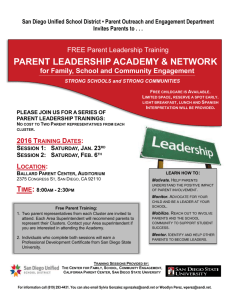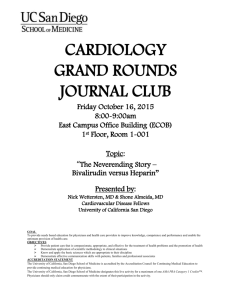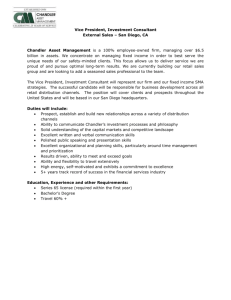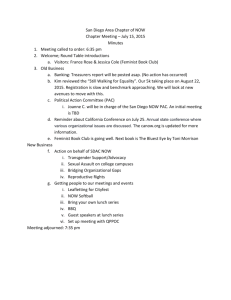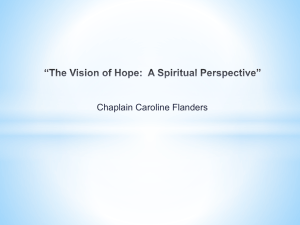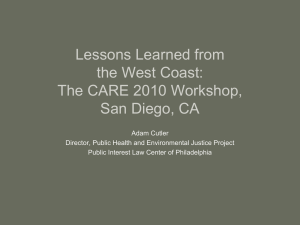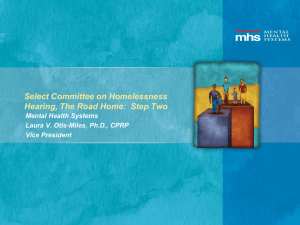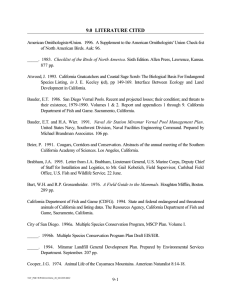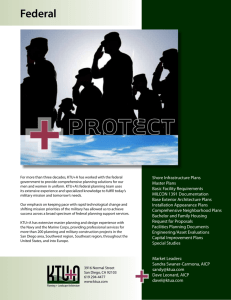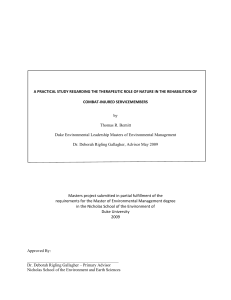Sample Pre-Prospectus Goal: Develop a Pilot Study under the
advertisement
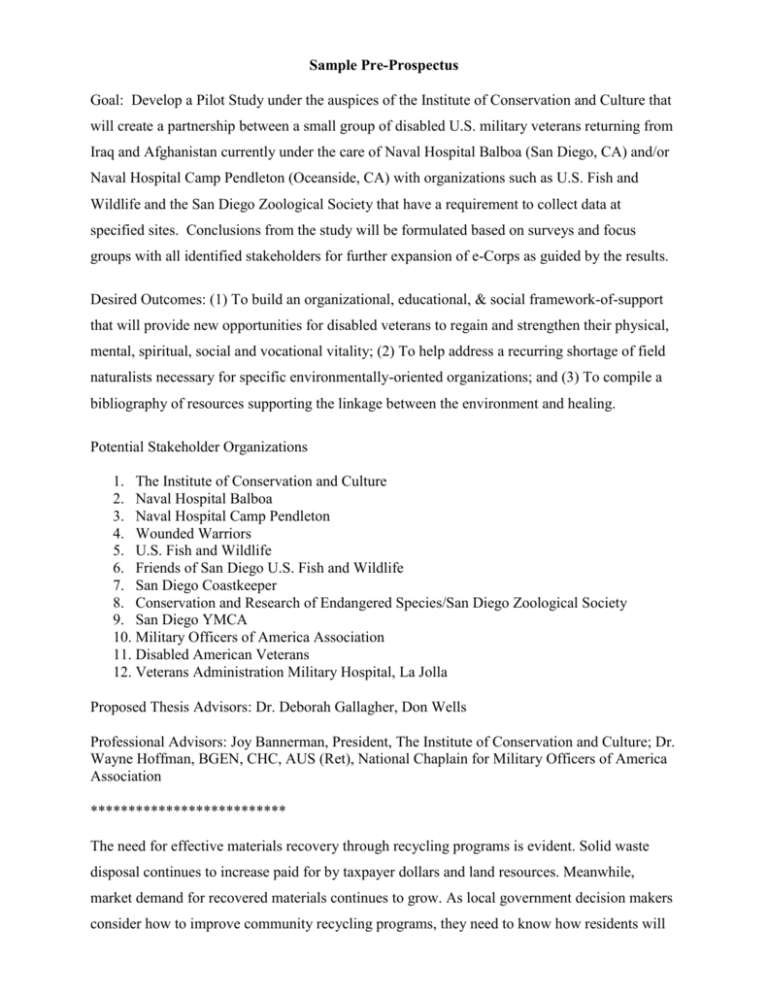
Sample Pre-Prospectus Goal: Develop a Pilot Study under the auspices of the Institute of Conservation and Culture that will create a partnership between a small group of disabled U.S. military veterans returning from Iraq and Afghanistan currently under the care of Naval Hospital Balboa (San Diego, CA) and/or Naval Hospital Camp Pendleton (Oceanside, CA) with organizations such as U.S. Fish and Wildlife and the San Diego Zoological Society that have a requirement to collect data at specified sites. Conclusions from the study will be formulated based on surveys and focus groups with all identified stakeholders for further expansion of e-Corps as guided by the results. Desired Outcomes: (1) To build an organizational, educational, & social framework-of-support that will provide new opportunities for disabled veterans to regain and strengthen their physical, mental, spiritual, social and vocational vitality; (2) To help address a recurring shortage of field naturalists necessary for specific environmentally-oriented organizations; and (3) To compile a bibliography of resources supporting the linkage between the environment and healing. Potential Stakeholder Organizations 1. The Institute of Conservation and Culture 2. Naval Hospital Balboa 3. Naval Hospital Camp Pendleton 4. Wounded Warriors 5. U.S. Fish and Wildlife 6. Friends of San Diego U.S. Fish and Wildlife 7. San Diego Coastkeeper 8. Conservation and Research of Endangered Species/San Diego Zoological Society 9. San Diego YMCA 10. Military Officers of America Association 11. Disabled American Veterans 12. Veterans Administration Military Hospital, La Jolla Proposed Thesis Advisors: Dr. Deborah Gallagher, Don Wells Professional Advisors: Joy Bannerman, President, The Institute of Conservation and Culture; Dr. Wayne Hoffman, BGEN, CHC, AUS (Ret), National Chaplain for Military Officers of America Association ************************** The need for effective materials recovery through recycling programs is evident. Solid waste disposal continues to increase paid for by taxpayer dollars and land resources. Meanwhile, market demand for recovered materials continues to grow. As local government decision makers consider how to improve community recycling programs, they need to know how residents will respond to various improvements in recycling programs to determine which decisions are worth more than others. This study will investigate residents’ willingness to pay for additional service (another convenience center or adding curbside service) or capacity (bins vs carts) in their local recycling programs. Surveys will be conducted to obtain the data. Potential Advisors: Randy Kramer, Deb Gallagher ************************** Currently, sustainable companies tend to be an anomaly; however, it seems likely that in the next few years, consumer demand for transparency and environmentally and socially responsible practices will pressure companies to adopt sustainable practices in some form. A big challenge for many companies will be to decide how they will do that. Through research and interviews with sustainable corporations and experts in environmental and sustainability management systems, I would like to build a decision analysis tool that could be used by companies to determine the best sustainable strategy/program for them to implement based on their goals and preferences. Potential alternatives for comparison include: Natural Step, ISO 14001, OHSAS, a human rights/service program). Once the tool is built, I would hope to test it through interviews with one or two large/small companies. Potential Advisors: Lynn Maguire, Deborah Gallagher, Ron Hardman ************************** The U.S. Fish and Wildlife Service spends approximately $45 million per year to conduct approximately 200,000 formal and informal consultations on projects implemented, funded or overseen by Federal Agencies under Section 7 of the Endangered Species Act. But are taxpayers getting their money’s worth, and are these consultations appreciably reducing the impact of projects on threatened and endangered species? No performance analysis has ever been conducted of the Section 7 program. I propose to conduct a limited review of the Service’s Section 7 consultation program, using representative field office data from formal and informal consultations to determine what impact those consultations had in limiting impacts to listed species. I expect to use this review and data to make recommendations on how the Service might improve the consultation process and focus its limited resources in a more effective manner, as well as recommendations for policy changes that might improve benefits to listed species. Potential Advisors: Deb Gallagher, Tim Profeta, Norm Christensen

